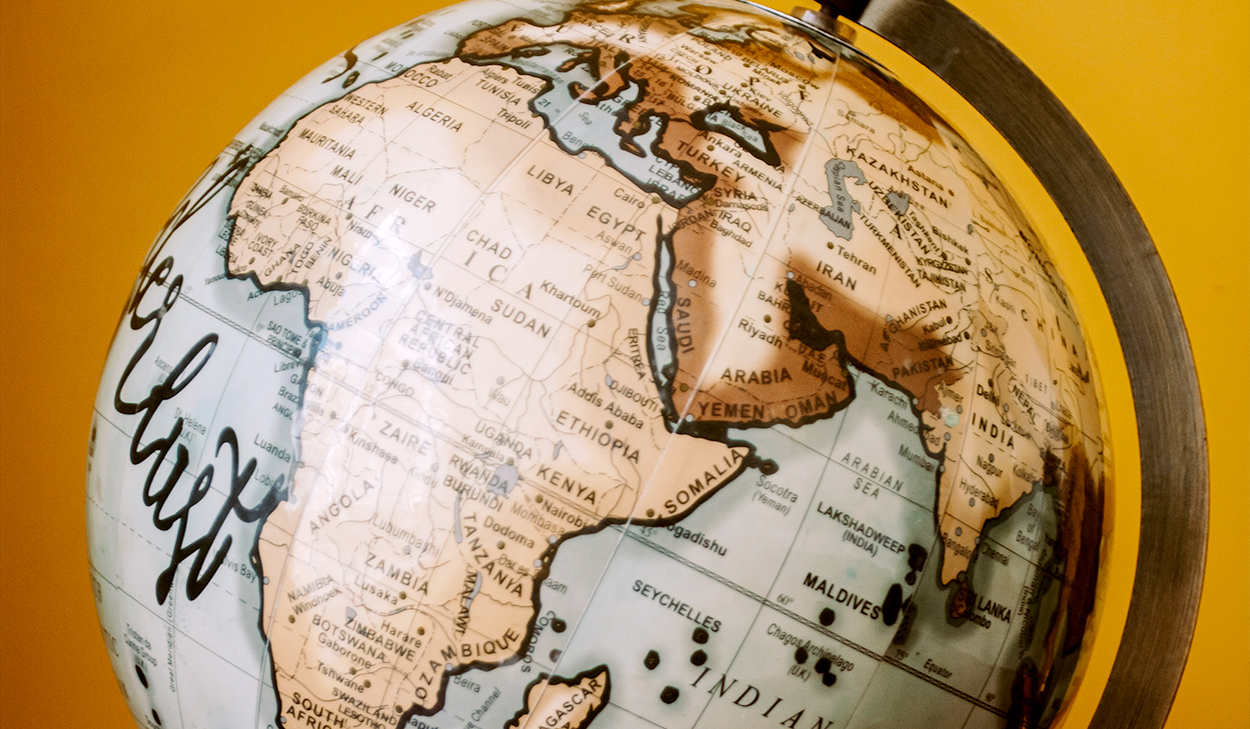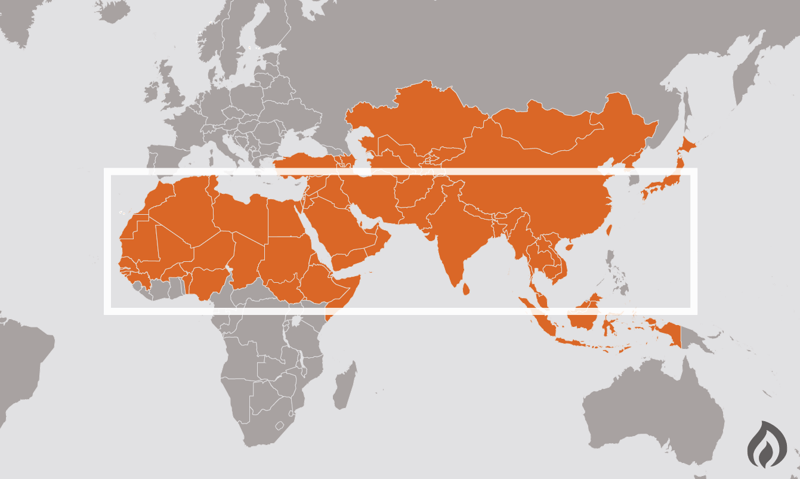The 10/40 Window and the Great Commission

When considering the Great Commission, where Jesus tells believers to “go and make disciples of all nations (Matthew 28:19),” some wonder if we have accomplished the “all nations” part of the commission. After centuries of Christians going around the world to share the gospel, haven’t we gone to all of the nations by now? Does this mean that the Great Commission is coming to an end?
According to the Joshua Project, more than 40% of the approximately 17,400 distinct people groups in the world are considered unreached, which means that less than 2% of a people group’s population are Evangelical Christians, and less than 5% are professing Christians. The largest concentration of unreached people groups resides in the 10/40 Window, aptly named for its location between 10 and 40 degrees north latitude, stretching across northern and Saharan Africa, the Middle East, and southern Asia.
With 3.12 billion unreached people living in the 10/40 Window, the Great Commission is far from over.
The 10/40 Window
 The term 10/40 Window was coined by Luis Bush, CEO of Partners International, as he was looking for a way to describe “an area of the world with great poverty and low quality of life, combined with a lack of access to Christian resources and unreached unbelievers.”
The term 10/40 Window was coined by Luis Bush, CEO of Partners International, as he was looking for a way to describe “an area of the world with great poverty and low quality of life, combined with a lack of access to Christian resources and unreached unbelievers.”
While there are many unreached people groups that live in developed and populous areas across the globe, a large number of these groups live within the borders of developing nations, where they reside in rural areas far from other people. The 10/40 Window contains some of the world’s poorest, with a majority of the population being illiterate and without regular access to the internet.
There are many types of people who live in this area, with many different religions, races, and cultures. In fact, the majority of followers of Islam, Hinduism, and Buddhism live within the 10/40 Window. While there are certainly peoples living within the 10/40 Window who are agnostic or atheist, a majority of these individuals are spiritual and are looking for answers to their own stirring, internal questions; they’ve just never had the opportunity to hear the truth that the gospel could provide in accordance with those questions.
What sharing the gospel looks like here
Oftentimes, these groups are unreached because of their location; being so spread out within developing nations makes it difficult to travel between groups, as most of the distance may have to be traveled on foot. People groups most likely have limited access to one another, and primarily stay within their own area because of this. Because of this and lack of internet access, it is difficult for news and ideas to travel from group to group naturally; generally, someone has to purposefully decide to go the distance and share new concepts with others. And with many of these groups being illiterate, other mediums of sharing the gospel can be helpful, such as oral narration and videos.
Though some of these people groups are incredibly hospitable, some groups can be hostile to outsiders, which can add to the difficulty of sharing the good news; the general lack of regular interaction between groups can cause individuals to become uncomfortable with those who are not from their own circle and distrust outsiders who come to visit. This requires patience and courage on behalf of those who do come to share the gospel.
Ultimately, when we are called to share the gospel, we are being welcomed into God’s work of expanding His family and are being given the opportunity to share in this great reward. It’s important we look beyond what nations may or may not have had missionaries yet but about where the name of Jesus still needs to be proclaimed, where His love still needs to be shared, and where brothers and sisters are waiting to be invited into the family—whether this is in our backyard or in the regions of the 10/40 window.
“Consequently, you are no longer foreigners and strangers, but fellow citizens with God’s people and also members of his household, built on the foundation of the apostles and prophets, with Christ Jesus himself as the chief cornerstone.” -Ephesians 2:19-20
To learn more, check out East-West's guide to unreached people groups.